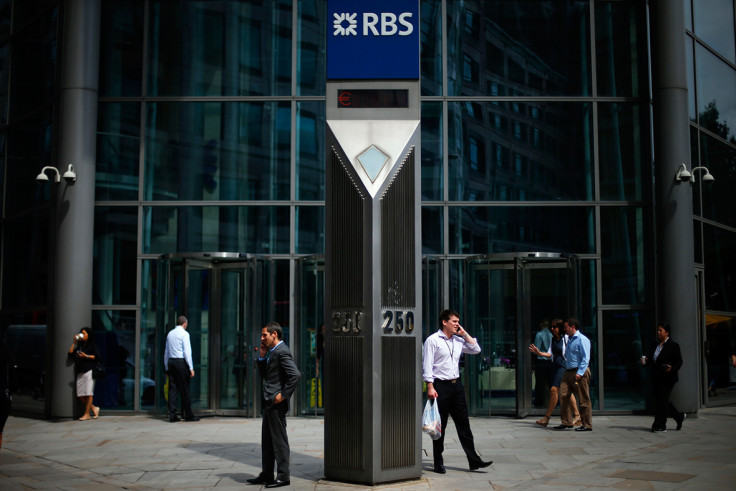RBS posts heavy £469m third quarter loss
Royal Bank of Scotland continues to face a range of large conduct and restructuring costs.

Royal Bank of Scotland (RBS) has posted a £469m ($571m) loss for the three months to September as it continues to face a series of litigation and restructuring charges.
The bank received a £45.5bn bailout during the financial crisis and has been tackling a range of issues such as selling off non-core assets and paying off a number of fines from regulators.
RBS's third-quarter loss compares with a profit of £952m in the same quarter a year ago, but is more than twice the £231m analysts had forecast.
The Edinburgh-based lender is 73%-owned by British taxpayers and has not made an annual profit since 2007. The Government is currently sitting on a £25bn-plus loss on its investment.
However, once restructuring costs and provision for litigation were excluded, RBS said it made an adjusted quarterly operating profit of £1.3bn in the period, beating a company-compiled consensus of £734m.
Chief executive Ross McEwan said: "We've said that 2015 and 2016 would be noisy as we work through legacy issues and transform this bank for customers."
"These results reflect that noise. Our core business results were good with a £1.3bn adjusted operating profit, our best quarter since 2014. The core business has now delivered on average over £1bn in adjusted operating profit for the last seven quarters."
During the period the bank said its charges include £425m of conduct and litigation charges and £301m of restructuring costs at Williams & Glyn, a network of around 300 banks it has been trying to sell for several years.
Abandoned bank sale
Earlier this week, Clydesdale Bank confirmed that it had made an offer for Williams & Glyn after Santander abandoned plans to buy the business. RBS declined to comment on Clydesdale's statement, saying only that it was "talking to a number of interested parties".
However, RBS said it did not expect to expect to sell off the business by the end of 2017, as had been required by the European Commission.
The bank also faces at least five separate claims from sets of investors who allege that they were misled into buying shares in the bank in April 2008.
But, unlike rivals Lloyds and Barclays, RBS did not record any provisions for repaying customers who were mis-sold payment protection insurance.
Issues facing RBS
Shares jumped 5% in early trading, after the bank's adjusted profits target was better than expected.
Richard Hunter, head of equities at Wilson King Investment Management, said: "On the face of it, there are some reasons to be cheerful following this latest update.
"Pre-tax profit is significantly higher, the capital cushion has improved once more and lending continues to grow at a fair clip. As such, the shares have had something of a relief rally in early trade.
"However, the statement cannot mask the litany of reasons for investors to avoid the stock. The sector as a whole continues to swim against the tide of increased regulatory and compliance costs, whilst the historically low interest rate environment is a difficult one.
"Stock specifically, RBS has yet to emerge from the weight of misconduct fines, restructuring costs, the distraction of the sale of the Williams & Glyn unit, the spectre of the Government stake and the lack of a dividend payment."
Hunter added that over the last year shares at RBS have fallen 40%, compared to a 9% rise in the wider FTSE 100 Index.
© Copyright IBTimes 2024. All rights reserved.






